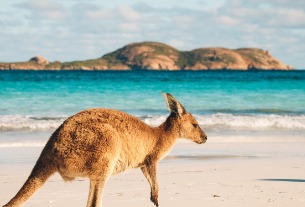COVID-19 has undercurrents with ramifications that go beyond what we can imagine. This global quarantine has been the largest “staycation” ever in mankind’s history.
The WTTC (World Travel & Tourism Council) says 1 in 10 jobs (330 million) worldwide are in travel & tourism. The organisation also highlights that 11% of the global GDP is derived from the sector.
2018’s largest source market for the global travel & tourism sector was China with 150m outbound travels, spending close to $277bn which is more than the GDPs of Finland, Vietnam or Egypt. It’s also worth mentioning that only close to 140m Chinese have passports – a tip of an iceberg when it comes to future potential.
Beware of finger-pointing
According to the China Tourism Academy, 84% of the Chinese outbound tourists are young and all under the age of 45. This means that their experiences and the way they will be received in a post-COVID-19 would influence their travel, education and investment decisions for decades to come.
Why does this matter? Because China is the largest source market in the world and only 10% of the population have passports. In other words, the future of hotel and hospitality hinges on the expenditure of Chinese tourists for years to come.
UK’s reliance on China and the world
Travel and tourism sector also has a direct and interrelated impact on the education sector. Universities have been around for centuries, and the academic sector is heavily reliant on the industry for its sustenance as it is the first exposure and touchpoint. Parents visit countries, like what they see in safety and security and then send their children and invest which also has a direct impact on real estate /construction and student accommodation affecting all other economic sectors.
Close to £7.5bn was spent by Chinese students alone in the U.K in form of tuition in 2018-19. Add other nationalities and you will soon realise that an estimated £10-11bn of international student fees is the backbone of the much-needed R&D budget that many U.K universities need in a post-Brexit world.
Read original article




